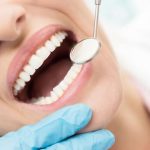Dachshund’s Teeth: How Many Does Your Furry Friend Have?
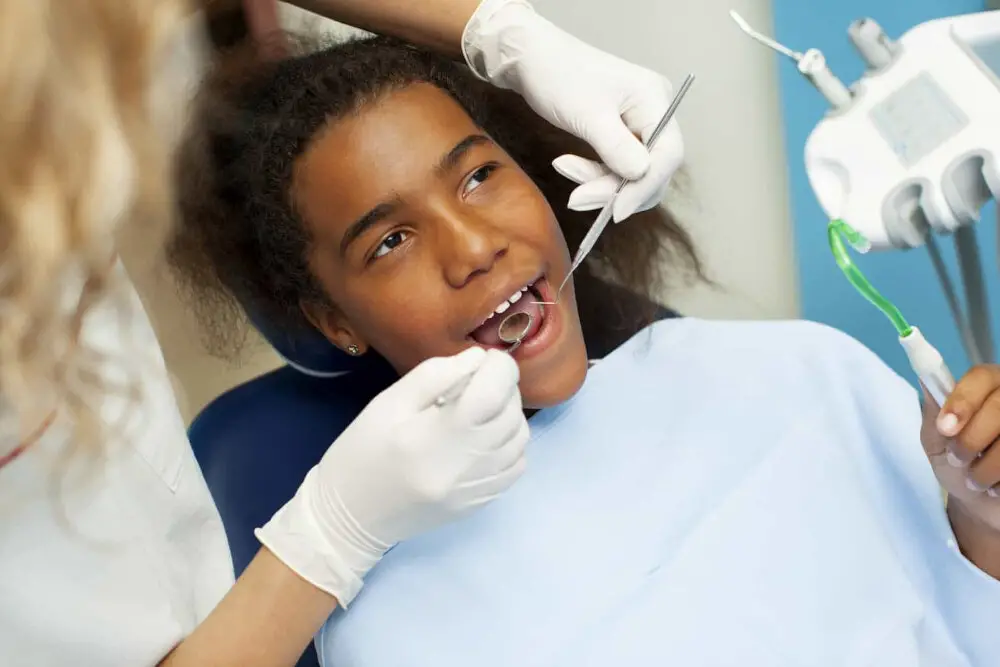
Dachshunds, also known as wiener dogs, are a popular breed of small dogs that are loved by many due to their playful and affectionate nature. These adorable pups are known for their unique elongated body shape and short legs, making them stand out from other breeds. One aspect of dachshunds that many people may not be aware of is their teeth. In this article, we will explore how many teeth dachshunds have, their dental health, and how to care for their teeth. Just like humans, dogs also require proper dental hygiene to maintain their overall health. Dental problems can lead to serious health issues in dogs, such as gum disease, tooth loss, and even heart disease. It is important for dachshund owners to understand their furry friend’s dental health and to take the necessary steps to ensure their teeth are healthy. By learning about the number of teeth dachshunds have, pet owners can take the right precautions to keep their furry friends’ teeth clean and healthy. So, let’s dive into the world of dachshunds’ teeth and explore this intriguing topic.
The Dachshund, also known as the wiener dog, is a small breed of dog that originated in Germany. They are characterized by their long, low bodies and short legs, which make them well-suited for hunting small animals. Dachshunds come in three different coat varieties: smooth, wirehaired, and longhaired. They are known for their loyalty, playfulness, and courage. Despite their small size, Dachshunds are known for being stubborn and independent, which can make them a challenge to train. However, with proper training and socialization, they can make wonderful companions. Additionally, it’s important to note that Dachshunds typically have 42 teeth, which can sometimes be prone to dental issues.
Dental health is crucial for the overall well-being of dogs, including Dachshunds. Poor dental hygiene can cause a variety of health problems, ranging from bad breath and tooth decay to infections and even heart disease. Dachshunds have 42 teeth, and it’s essential to maintain them clean to avoid any dental issues. Regular brushing, dental chews, and visits to the veterinarian are key to ensuring proper dental care. Neglecting dental health can lead to painful and costly procedures, which can be avoided with proper preventive care. Therefore, pet owners should pay close attention to their furry friend’s teeth and take all the necessary steps to maintain good dental hygiene.
How Many Teeth Do Dachshunds Have?
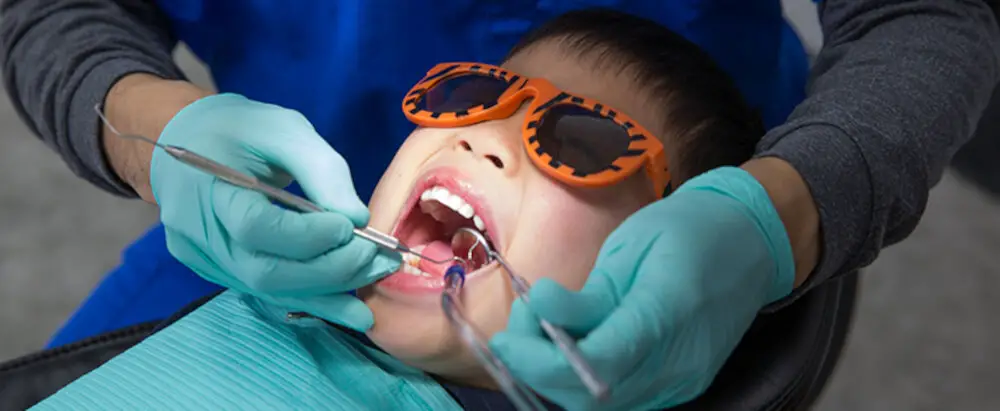
Dachshunds are small and cute dogs that are known for their long bodies, short legs, and playful personalities. They are also known for having a set of teeth that help them chew their food, play with their toys, and defend themselves when necessary. Typically, adult dachshunds have 42 teeth, which include 20 upper teeth and 22 lower teeth. These teeth are designed to help dachshunds chew their food properly, which is important for their overall health and well-being. Dachshunds’ teeth are also important for their social interactions, as they use their teeth to play with other dogs and show their affection towards their owners. It’s important to take care of your dachshund’s teeth to ensure that they remain healthy and strong. This includes brushing their teeth regularly, providing them with healthy treats and toys that promote dental health, and taking them to the vet for regular checkups. Neglecting your dachshund’s dental health can lead to serious problems such as tooth decay, gum disease, and even tooth loss. So, if you want your furry friend to have a healthy and happy life, make sure that you take good care of their teeth!
The adult teeth in dogs, including Dachshunds, consist of 42 teeth, which are categorized into four types based on their location and function. The incisors, located at the front of the mouth, are used for grabbing and holding objects. The canines, situated next to the incisors, are used for tearing and shredding food. The premolars, located behind the canines, are used for grinding and crushing food. Lastly, the molars, situated at the back of the mouth, are used for further grinding and crushing of food. Adult teeth are larger and stronger than puppy teeth, and they are meant to last a dog’s lifetime with proper dental care.
Dachshunds are small dogs with a distinct appearance and an average lifespan of 12 to 16 years. These adorable pets have a unique dental structure, with a total of 42 teeth that are designed to help them chew and tear food efficiently. Specifically, Dachshunds have 20 teeth in the upper jaw, including 6 incisors, 2 canines, 8 premolars, and 4 molars. On the other hand, their lower jaw has 22 teeth, consisting of 6 incisors, 2 canines, 8 premolars, and 6 molars. Maintaining proper dental hygiene is crucial for Dachshunds since they are prone to dental problems such as tartar buildup, gum disease, and tooth decay. Therefore, it is essential to brush their teeth regularly and provide them with dental treats and toys to keep their teeth healthy and strong.
When it comes to comparing Dachshunds to other dog breeds, their teeth can be a distinguishing factor. Dachshunds have fewer teeth than many other breeds, with only 42 adult teeth compared to the average of 48. However, their teeth are still strong and sharp, allowing them to efficiently chew and tear their food. Additionally, their elongated bodies and short legs set them apart from other breeds, giving them a unique appearance and making them popular among dog lovers. Despite their small size and fewer teeth, Dachshunds are known for their tenacity and loyalty, and are often beloved companions to their owners.
Signs of Dental Issues in Dachshunds
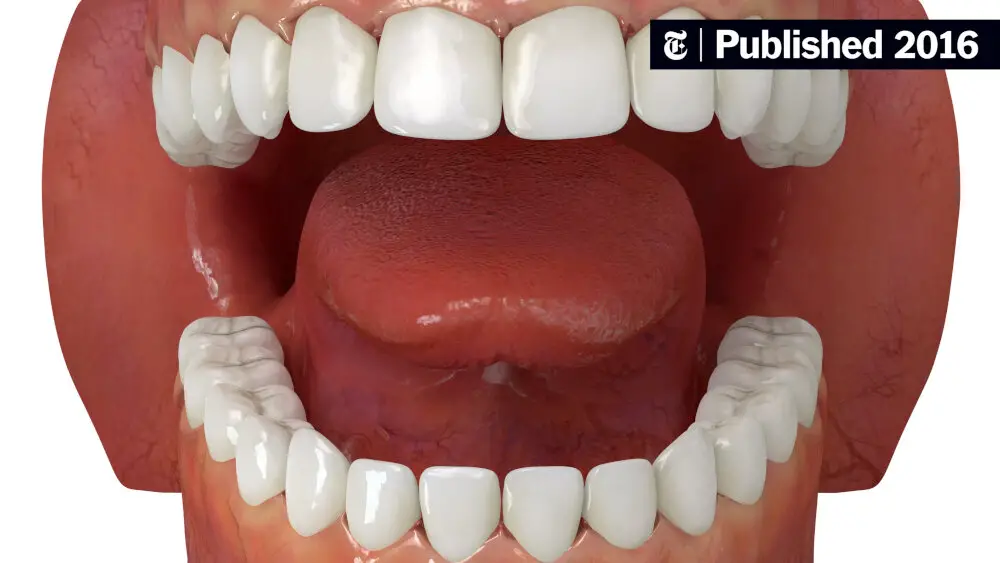
Dachshunds, also known as wiener dogs, are adorable and playful companions. However, like any other breed, they are prone to dental issues that can affect their overall health. As a responsible pet owner, it is crucial to keep an eye out for signs of dental problems to prevent further complications. One of the most common signs of dental issues in dachshunds is bad breath. If your furry friend’s breath smells unpleasant, it may indicate the presence of bacteria that can cause gum disease or tooth decay. Additionally, if your dachshund is reluctant to eat or shows signs of discomfort while chewing, it may be a sign of toothache or gum irritation. You may also observe bleeding or swelling in the gums or loose teeth, which can be a result of advanced dental issues that require veterinary attention. It is essential to prioritize your dachshund’s dental health to avoid severe dental problems that can lead to discomfort, pain, and even tooth loss. Regular dental check-ups, daily brushing, and providing dental chews or toys can help keep your furry friend’s teeth clean and healthy. Moreover, a balanced diet can promote good oral hygiene by reducing the risk of plaque and tartar buildup. Remember, maintaining your dachshund’s dental health can improve their overall well-being and ensure that they enjoy a happy and healthy life.
Dachshunds are prone to various dental problems due to their small size and unique jaw structure. One of the most common dental issues in Dachshunds is periodontal disease, which is caused by the buildup of plaque and tartar on their teeth. This can lead to gum inflammation, tooth loss, and even infections in other parts of the body. Another dental problem that affects Dachshunds is tooth decay, which can also result from poor dental hygiene. Additionally, some Dachshunds may have misaligned teeth due to their short jaw, which can cause discomfort while eating and increase the risk of dental problems. Regular dental check-ups and proper dental care are essential to prevent these problems and ensure your furry friend’s dental health.
Dental issues in Dachshunds can lead to a variety of behavioral changes that owners should be aware of. One of the most common signs is a reluctance to eat or chew on hard objects, as this can cause pain or discomfort in the mouth. Additionally, dogs with dental issues may paw at their faces, drool excessively, or show signs of tooth sensitivity when touched. In more severe cases, dogs may develop bad breath or even refuse to open their mouths entirely. It’s important for Dachshund owners to stay vigilant for these behavioral changes and seek veterinary care if they suspect dental problems.
Regular dental checkups are crucial for the overall health and well-being of our furry friends. Dachshunds, like all dogs, require routine dental examinations to prevent tooth decay, gum disease, and other oral health problems. Neglecting dental care can lead to more serious health issues such as infection, tooth loss, and even organ damage. During routine checkups, veterinarians can identify any potential dental problems and provide appropriate treatments, such as teeth cleaning or extractions. Additionally, regular dental checkups can help to prevent bad breath, which can be a sign of underlying health issues. By prioritizing dental care, dachshund owners can ensure their furry friends live long and healthy lives.
Maintaining Your Dachshund’s Dental Health
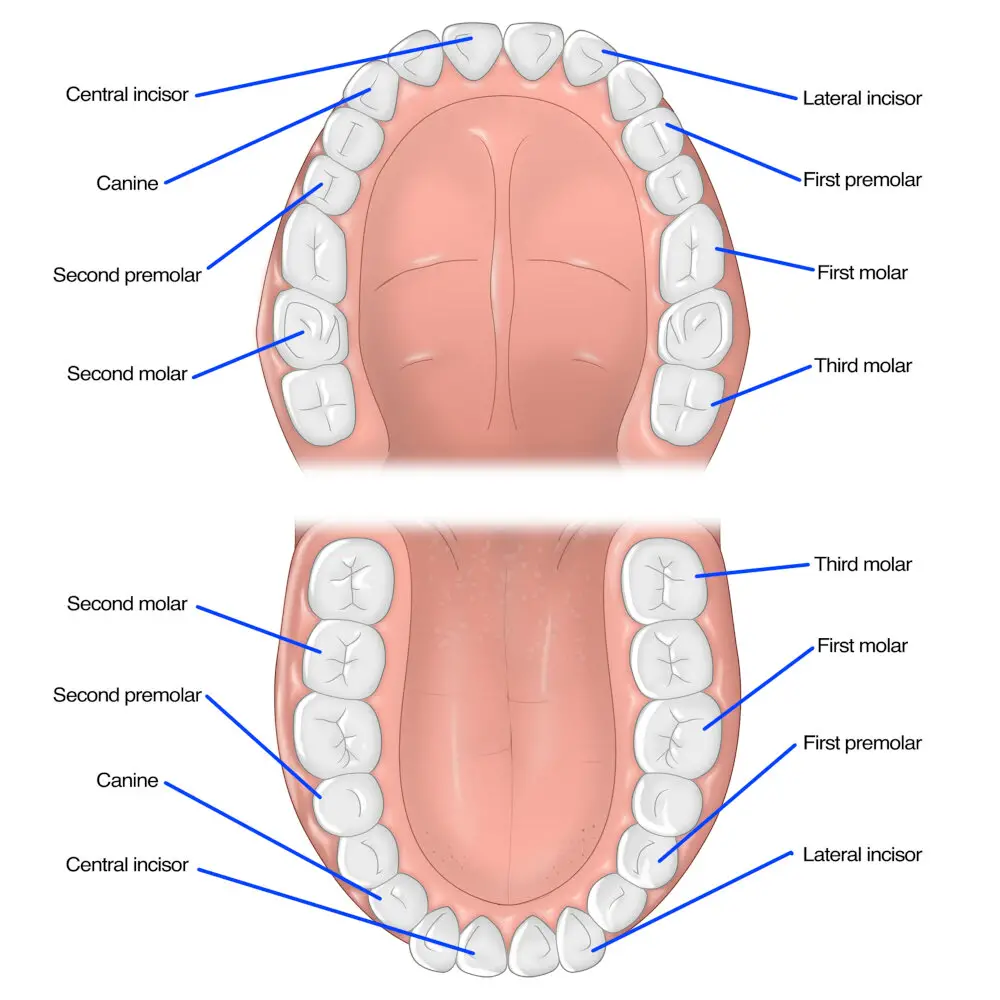
Dachshunds are prone to dental problems, such as gum disease, plaque buildup, and tooth decay. As a responsible pet owner, it is important to maintain your dachshund’s dental health to prevent these issues. One of the best ways to maintain your furry friend’s dental health is by providing them with a healthy and balanced diet. Feeding your dachshund dry kibble or dental chews can help remove plaque and tartar buildup from their teeth. Additionally, avoiding sugary or starchy treats can help prevent tooth decay. It is also important to make sure your dachshund has access to fresh water at all times to promote healthy saliva production and wash away any food particles that may be stuck in their teeth. Regular dental check-ups with your veterinarian can also help maintain your dachshund’s dental health. During these check-ups, your vet can examine your dachshund’s teeth and gums, identify any potential dental issues, and recommend appropriate treatments. You can also ask your veterinarian to demonstrate how to brush your dachshund’s teeth at home, which is an effective way to remove plaque and tartar buildup. Consistent dental care can help prevent dental problems in your dachshund, which can ultimately lead to better overall health and happiness for your furry friend.
Dental care is an essential aspect of maintaining your furry friend’s overall health and well-being. To ensure good oral hygiene, there are several tips you can follow for at-home dental care. Firstly, brush your dachshund’s teeth regularly with a dog-friendly toothbrush and toothpaste to prevent plaque buildup, gum disease, and bad breath. Provide your dachshund with plenty of chew toys and dental chews to help clean their teeth and exercise their jaws. Additionally, ensure your dachshund has a balanced diet with the necessary nutrients to support their dental health. Finally, schedule regular check-ups with your veterinarian to monitor your dachshund’s dental health and address any issues early on. By following these tips, you can help keep your dachshund’s teeth healthy and strong for years to come.
While discussing the number of teeth a Dachshund has, it’s important to note the significance of proper nutrition for dogs. Just like humans, dogs require a balanced diet to maintain their health and well-being. A well-nourished dog has a stronger immune system, healthier coat, and better digestion. Additionally, a balanced diet can prevent dental problems, which is especially important for Dachshunds as they are prone to dental issues due to their small mouths and crowded teeth. Proper nutrition should include a mix of proteins, carbohydrates, fats, vitamins, and minerals. By providing your furry friend with the right nutrition, you can ensure a happy and healthy life for your Dachshund.
It is highly recommended to take your dachshund for professional dental cleaning at least once a year. There are several options available to choose from, including ultrasonic scaling and polishing, hand scaling, and fluoride treatments. Ultrasonic scaling is a popular choice, as it uses high-frequency vibrations to remove tartar and plaque from teeth. Hand scaling, on the other hand, involves manually scraping off tartar and plaque using specialized dental instruments. Fluoride treatments are also available, which help to strengthen and protect the teeth from decay. A professional dental cleaning can help keep your dachshund’s teeth healthy and strong, preventing potential dental issues down the road.
In summary, understanding the dental anatomy of your dachshund is crucial for their oral health. These adorable pups have a total of 42 teeth, including incisors, canines, premolars, and molars. Regular dental check-ups and cleanings are essential to maintain their pearly whites. Neglecting their dental care can lead to various oral health issues, such as gum disease, tooth decay, and bad breath. Providing your dachshund with proper dental care, such as brushing their teeth regularly and providing dental chews, can help prevent these issues and keep their teeth healthy and strong. Keeping your furry friend’s teeth clean and healthy is not only important for their oral health but also their overall well-being.
As a Dachshund owner, it is crucial to prioritize your furry friend’s dental health. This is because Dachshunds are prone to developing dental problems due to their unique teeth structure, which includes 28 teeth and elongated jaws. Neglecting dental care can lead to tartar accumulation, gum disease, tooth decay, and even tooth loss. Regular brushing, dental check-ups, and a healthy diet can help maintain good oral hygiene and prevent serious dental issues. Remember, a healthy mouth means a healthy Dachshund, so make sure to prioritize your furry friend’s dental health to ensure they live a happy and healthy life.
Regular dental checkups and care are crucial for maintaining your dachshund’s overall health and well-being. Neglecting your furry friend’s dental hygiene can lead to serious health problems such as tooth decay, gum disease, and even heart disease. By scheduling routine dental checkups with your veterinarian, you can catch any potential dental issues early on and prevent them from escalating into more serious health problems. Additionally, daily brushing, providing dental chews or toys, and incorporating a healthy diet can all contribute to maintaining your dachshund’s dental health. Don’t let your furry friend suffer the consequences of poor dental hygiene – prioritize regular dental care and ensure a happy, healthy life for your beloved pet.
Conclusion

In conclusion, understanding the dental anatomy of your dachshund is crucial for their overall health and wellbeing. These furry friends have a unique set of teeth that require proper care and attention. With their small size and predisposition to dental issues, it’s essential to keep a close eye on their teeth and take preventative measures such as regular brushing and dental check-ups. By doing so, you can ensure that your dachshund’s teeth remain healthy and strong, allowing them to continue wagging their tails and bringing joy to your life for years to come.


